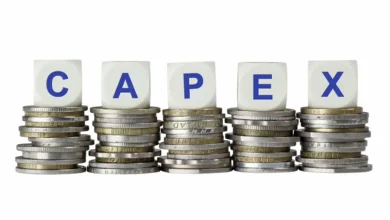Banking on the Mullet Trade
Banking on the Mullet Trade: A 2023 Investment Perspective
In a lively interview on ABC Radio Melbourne, financial advisor Marco Mellado provided insightful commentary on the state of markets, the so-called “mullet trade,” and key strategies for Australian investors. Here’s a breakdown of the discussion for those considering their next financial moves.
What Is the Mullet Trade?
The term “mullet trade” humorously references the iconic hairstyle: “business at the front, party at the back.” In investment terms, it symbolizes a rebound after a tough year, particularly in technology stocks, which faced significant challenges in 2022.

According to Mellado, global markets have been under a “bear market” cloud for over 12 months, with some regions experiencing declines of 15–30%. Yet, the Australian market has stood resilient. While overseas tech stocks plummeted, Australia’s broader market dropped only 5% last year and remained steady when factoring in dividends.
Why Australia Outperformed
Mellado highlighted key factors contributing to Australia’s resilience:
- Strong Corporate Foundations
Companies like BHP, which saw a 25% rise in share value last year, played a crucial role. This mining giant, representing 10% of the Australian index, benefited from the global demand for commodities. - Diverse Sector Strength
Australia’s stock market, unlike the tech-heavy US market, is diversified with robust performance in banking, energy, and materials sectors. - International Confidence
With foreign capital flowing into the Australian market, the country appears as a safe haven amid global uncertainty.
Investment Strategies in a Bear Market
Mellado emphasized the importance of strategic planning:
- Gradual Market Entry: Investors should “ease into” the market by making small, incremental investments instead of waiting for the perfect time.
- Focus on Fundamentals: Choosing well-managed companies with long-term potential remains the cornerstone of successful investing.
- Tailwinds from Global Recovery: As Australia’s largest trading partner, China, revives its economy, Australian businesses tied to trade could benefit significantly.
Sector Highlights for 2023
Investors should consider the nuances of different industries:
- Banks: Australian banks remain strong, showing resilience despite slight declines last year.
- Building Materials: With residential construction stabilizing, companies in this sector, like Reece, may experience a revival.
- Consumer Staples: Retail-focused businesses tied to home construction, such as Harvey Norman, could benefit if interest rates stabilize.

Understanding Shorting and Speculative Investments
The show also addressed topics like short selling and penny stocks:
- Short Selling: This strategy involves betting against a company’s success, which, while controversial, provides liquidity to markets. Mellado views it as a challenging yet vital mechanism in financial ecosystems.
- Penny Stocks: High-risk investments in low-value companies may pay off, but investors should proceed cautiously, understanding the high likelihood of failure.
Key Advice for Investors
- Global vs. Local: Mellado reminded investors that many Australian companies operate globally, making diversification essential even within a domestic portfolio.
- Avoid Speculation: Stories like Tesla’s meteoric rise can be alluring, but investors must rely on solid fundamentals rather than hype.
- Tax Implications: Strategies like selling shares to cover liabilities or investing in foreign markets require careful consideration of tax obligations.
Optimism for the Lucky Country
Despite global recession fears, Mellado remains optimistic about Australia’s prospects in 2023. By focusing on quality investments and leveraging Australia’s unique strengths, investors can navigate the mullet trade with confidence.
So, as Mellado quipped, “Australia is a lucky country,” and 2023 could very well prove why.
In an ever-evolving financial landscape, it’s essential to remain informed and proactive about where and how to invest your money. Whether you’re dipping a toe into the share market, considering new fintech solutions, or simply seeking a secure place to store your funds, understanding the nuances of today’s economy can help you make more confident decisions.
The Role of Technology in Modern Investing
Technology has dramatically shifted the way individuals access and interact with financial markets. From mobile apps offering micro-investments to international platforms vying for attention, the sheer variety can feel overwhelming. While innovation opens doors, it’s wise to approach these new tools with a balanced perspective.
Many apps and platforms claim to simplify investing, but some come with hidden fees, unclear terms, or unrealistic promises. As noted in earlier discussions, communities and forums are invaluable resources for vetting platforms. Reviews from users and insights from experienced investors can provide clarity before you commit.
Staying Grounded Amid Investment Hype
The advice to keep investing “boring” may sound counterintuitive, but it emphasizes consistency and long-term thinking over impulsive decisions. While flashy opportunities can be enticing, they often carry higher risks. A disciplined approach that aligns with your financial goals and risk tolerance will typically yield better results over time.
Making the Most of Your Superannuation
For those nearing retirement or planning to downsize, understanding the nuances of superannuation rules is critical. While there are limits and conditions to contributions, strategies like allocating funds to the lower-income partner or carefully choosing investment vehicles outside of super can maximize returns and minimize tax implications. Seeking professional advice to tailor these strategies is always a good idea.
High-Interest Savings: A Safe Harbor
In a climate of economic uncertainty, high-interest savings accounts and term deposits have regained popularity. With rates exceeding 4%, these options provide a low-risk way to preserve capital while earning modest returns. They are particularly appealing to those with a conservative risk profile or a need for liquid funds.
Diversifying in a Weak Market
As markets remain volatile, diversification becomes even more critical. Spreading investments across asset classes—such as shares, property, and fixed-income products—can help mitigate risks. While it’s tempting to stay on the sidelines during uncertain times, selectively entering the market with a well-thought-out plan could lead to opportunities for growth.
The Value of Financial Advice
Whether you’re exploring new investments, considering downsizing, or planning for retirement, professional advice tailored to your unique situation is invaluable. As the financial world grows increasingly complex, having an expert by your side ensures you’re not just reacting to market trends but navigating them with intention.
Conclusion
As the “mullet trade” metaphor suggests—balancing the business of serious financial planning with the flexibility to adapt to changing times—today’s market demands both caution and creativity. By staying informed, embracing technology wisely, and leaning on trusted resources, you can confidently steer your financial future.
What are your thoughts on the current investment landscape? Share your experiences and strategies in the comments below!





